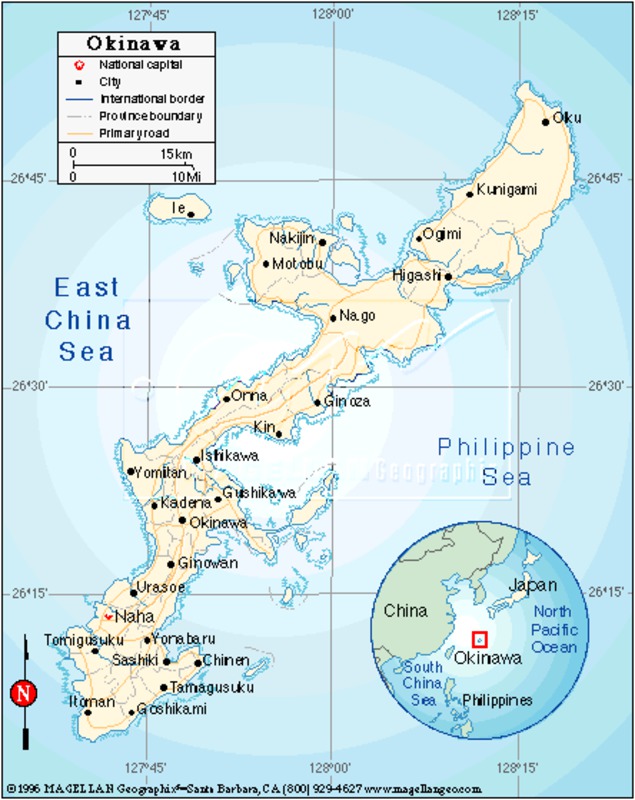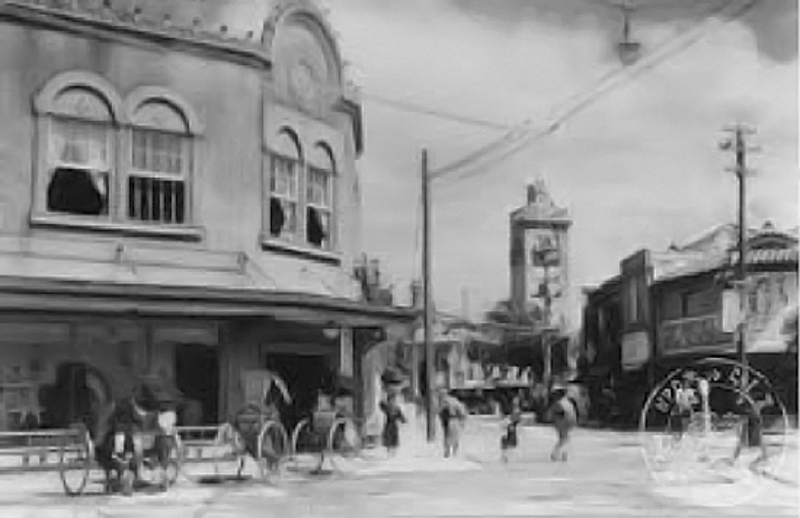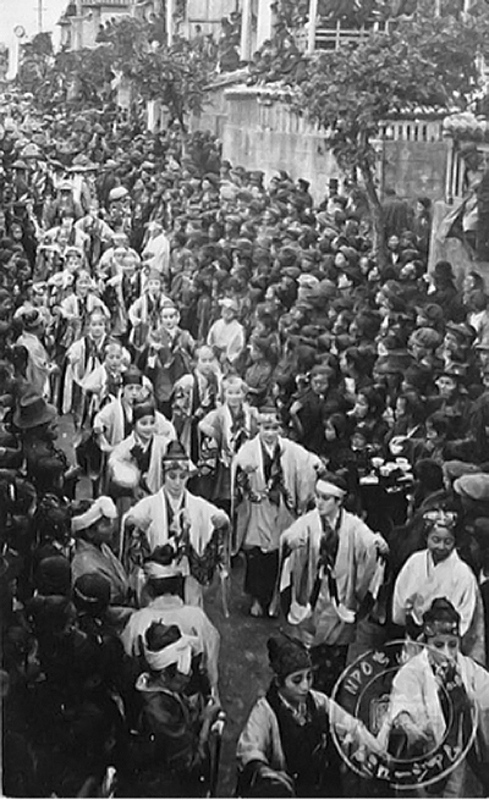The harrowing story of Masako Shinjo Summers Robbins
In the beginning I was Shinjo Masako. My parents were from Okinawa though I was born in Osaka, Japan, in 1928. My father was a factory worker in Osaka before he took the family back to Okinawa. Then, when I was not yet of school age, my father sold me to a house of prostitution. Ironically, the horror of the Battle for Okinawa eventually led to a very different life for me. After the battle, I worked for the U.S. military, earning enough money to buy my freedom from the brothel. I also met the American who became my first husband. Years later, in the United States, I sold my paintings and taught art for a number of years at a college in Arizona. This is my story.
-------------------------------------------------------------------------------------
Poverty
My older brother and sister, Motoichi and Hanako, as well as my younger brother, Akio, and I lived with our parents in Osaka, but I have few memories of life there. I do recall going to the train station to meet my father when he returned from work bringing candy for us. And I remember the death of my sister, Hanako, who was sickly and huddled by the warmth of the hibachi. I don’t know when she was born or why she died, but I can still see the funeral car that took her away while I stood by the door watching it leave.
Next I remember being on a ship. We were in the hold of the ship, and we slept on the floor with other people around. I was told not to go up the stairs but did not know why. When the ship docked, I did go up and I saw a big mountain. Later I was told that the ship had stopped in Kagoshima on the way to Okinawa, but I only remember standing there gazing at the mountain.
What I remember next is a rainy night. I was so cold that I was crying. We were waiting for a bus to take us to my father’s home village, Imadomari, in Nakijin, Okinawa. Our house had a thatched roof. Part of the floor was wood and part was dirt. We didn‘t have enough food and I was hungry all the time. Mostly, I think, we had sweet potatoes and clear soup.
My head had scabs, and there were lice and flies in my hair. I remember Mother putting a towel over my head. Maybe that was to protect my little brother when I carried him on my back. Mother also poured petroleum oil over my head to kill the lice.
Three girls who lived nearby were my friends. One was named Katsuko, and her father was the school principal. Their house had a red tile roof and was surrounded by a rock wall. At times, Katsuko invited me to her house, but when I saw her father I was so frightened of this very important man that I would leave.
We were so poor that we didn’t have a decent door to close when we all went to bed, and there was nothing to keep us warm but thin futons which we shared as the wind howled outside. Sometimes I was awakened by a rat biting my finger. Throughout the day, we could hear rats moving in the ceiling beneath the thatched roof.
At night, we had a dim oil lamp. I was always pleased when there was moonlight because then it was brighter outside than it was inside our house. Even today I still love moonlight. It seemed that every night my father drank sake, and sometimes he would argue loudly, about the property line, with the man who lived in the house behind ours. We children were so upset that we couldn’t go to sleep until our father finally came inside and fell asleep. The only good thing about living in Imadomari was that my favorite playground was the nearby shore of the beautiful sea.
One day my father said that soon I would go to Naha, the capital of Okinawa. I remember having heard good things about Naha so I must have been very excited, not knowing the change that was to come in my life. That evening my friend Katsuko brought sugar water that she and two other friends and I shared. They were a few years older than I and probably knew what was in store for me. The four of us took turns sipping the sugar water, a delicious treat for me because my family could not afford such a special luxury.
Naha before World War II
The following day I wore a pretty kimono and rode with my father in a taxi to Naha. We went into a huge house called Namimatsu-Ro where a lady welcomed us and led the way into a large room. In the house there were many ladies, and someone brought tea for my father and candy for me.
The next morning, my father, an older woman, and I went to Nishinjo, a big intersection. My father got into a taxi and I too tried to get in. He stopped me, saying that I had to stay here and that I would have good food and wear pretty kimonos. Then he left. I tried to catch up with my father’s taxi but could not, so I just stood there crying. I didn’t understand what was happening and was scared. The strange woman standing beside me held me tightly so I would not run away.
I remember crying for the next few days and sitting in a corner. Everyone tried to be nice to me, but I was confused and didn’t know why my father had left me. I didn’t understand that this was my new home and that in the coming years I would be trained in music and traditional Okinawan dance, in entertaining, and finally, when I was a teenager, in serving men.
A House is Not a Home
The lady who had bought me was originally from the same village as my parents. I called her Anmaa, meaning mother. She was one of four older women in this eighteen-room house, each of whom had three or four girls. Anmaa had three teenaged girls in addition to me, and she also had overall responsibility for the house. She collected rent from the three other women and, in turn, paid the house owner. The house was in Naha’s entertainment area known in Japanese as Tsuji (Okinawan Chi-ji). Within Tsuji was a licensed “red light” district, or Yukaku.
Annual Parade of Tsuji courtesans before World War II
My formal music and dance training began when I was six or seven. I took lessons in Okinawan dance from Mr. Arakaki and music lessons on the thirteen-stringed koto from Mr. Matayoshi. We called the dance teacher Arakaki-Tari and the music teacher Matayoshi-Tari an honorific showing respect. Arakaki-Tari was quiet and easygoing when I made mistakes in dancing. Matayoshi-Tari, on the other hand, was intimidating because if I made a mistake with my music he would bang on the koto and yell. If I played without a mistake, however, he would smile and sometimes reward me with candy or hot tea. After Matayoshi-Tari’s students mastered our music lessons, he would have us perform at various functions, and I felt honored at those times.
When I was perhaps eight or nine years old, Anmaa took me and my three sisters to Imadomari, her home village and mine, for a few days. My mother came to the house of Anmaa’s brother where we were staying and asked if I might be allowed to visit my parents’ home. Anmaa told me to go with my mother. I had not seen my parents for four or more years, and this woman did not seem like my mother. I could not even remember her face. However, Anmaa told me to go. When we got to the house, my father, two brothers, an old woman, and other people were waiting. I later learned that the old woman was my grandmother and the other people were my relatives.
I didn’t want to spend the night with them, and I went back to the house of Anmaa’s brother. She asked me what had happened, and I told her the place was poor so I had left. She told me to go back and stay with them. I obeyed her of course. When everyone saw me return, they cried. I cried with them. I felt sorry that they had to live in such a pitiful place. While I was there, I learned why my father had sold me. He had a bad leg and was unable to work. In addition, my younger brother was very sick. Several days later, Anmaa, my sisters, and I returned to Naha.
Many of the memories of my childhood are lacking chronology or sequence. I can’t be sure just how old I was when a thing happened or, in some cases, if one particular thing happened before or after another thing. When I was about six or seven, I started school. I loved going to school, but I was able to go for only two or three years. After that I had no further formal education.
My dropping out of school resulted from the harassment of an older sister, Kami-Chan-Nesan. She hated school. Also, she probably was jealous of me because Anmaa spoiled me. I was younger and, unlike my older sisters, had few required tasks beyond my music and dancing lessons. Kami-Chan-Nesan would force me to skip school with her. She would make me walk with her to the Naminoue shrine and we would sit together in the park. With nothing to do, I’d sometimes pass the time by catching a green beetle, attaching a string, and flying it around in circles. When we went home, I would have to give the impression that we had been in school all day.
Finally, the teacher came to talk with Anmaa about my absences. When Anmaa asked me why I had not been going to school, I had to lie because I feared that Kami-Chan Nesan would beat me. From my answers, Anmaa felt that I just didn’t like school, so she told me not to go anymore. By then, I was so far behind in my work that catching up would have been difficult anyway. The only unpleasant thing about my actually going to school had been that the students and townspeople looked down on anyone who came from Tsuji. Some girls in class had pretty dresses and shoes but I didn’t have any nice clothes and was embarrassed. I did have pretty kimonos, but I could not wear those to school. ...


